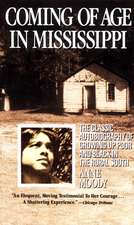Inequality and African-American Health: How Racial Disparities Create Sickness
Autor Shirley a. Hillen Limba Engleză Paperback – 4 oct 2016
This book reveals how living in a highly racialized society affects health through multiple social contexts, including neighborhoods, personal and family relationships, and the medical system. Black-white disparities in health, illness, and mortality have been widely documented, but most research has focused on single factors that produce and perpetuate those disparities, such as individual health behaviors and access to medical care. Inequality and African-American Health is the first book to offer a comprehensive perspective on health and sickness among African Americans.
Starting with an examination of how race has been historically constructed in the United States generally and in its medical system specifically, it goes on to explore the resilience of these racial ideologies and practices. Shirley A. Hill shows that racial disparities in health reflect racial inequalities in living conditions, incarceration rates, family systems, and opportunities and that these racial disparities often cut across social class boundaries and have gender-specific consequences. Bringing together data from existing quantitative and qualitative research with new archival and interview research, this book marks a crucial advance in the fields of family studies, race and ethnicity studies, and medical sociology.
Starting with an examination of how race has been historically constructed in the United States generally and in its medical system specifically, it goes on to explore the resilience of these racial ideologies and practices. Shirley A. Hill shows that racial disparities in health reflect racial inequalities in living conditions, incarceration rates, family systems, and opportunities and that these racial disparities often cut across social class boundaries and have gender-specific consequences. Bringing together data from existing quantitative and qualitative research with new archival and interview research, this book marks a crucial advance in the fields of family studies, race and ethnicity studies, and medical sociology.
| Toate formatele și edițiile | Preț | Express |
|---|---|---|
| Paperback (1) | 293.08 lei 22-36 zile | |
| Bristol University Press – 4 oct 2016 | 293.08 lei 22-36 zile | |
| Hardback (1) | 954.33 lei 43-57 zile | |
| Bristol University Press – 4 oct 2016 | 954.33 lei 43-57 zile |
Preț: 293.08 lei
Preț vechi: 308.50 lei
-5% Nou
Puncte Express: 440
Preț estimativ în valută:
56.08€ • 58.70$ • 46.68£
56.08€ • 58.70$ • 46.68£
Carte disponibilă
Livrare economică 10-24 martie
Preluare comenzi: 021 569.72.76
Specificații
ISBN-13: 9781447322825
ISBN-10: 1447322827
Pagini: 224
Dimensiuni: 171 x 241 x 13 mm
Greutate: 0.3 kg
Editura: Bristol University Press
Colecția Policy Press
ISBN-10: 1447322827
Pagini: 224
Dimensiuni: 171 x 241 x 13 mm
Greutate: 0.3 kg
Editura: Bristol University Press
Colecția Policy Press
Notă biografică
Shirley A. Hill teaches courses on the family, medical sociology, social inequality, and qualitative methods at the University of Kansas. She is the author, most recently, of Families: A Social Class Perspective.
Cuprins
Preface
Introduction
Part One: Theorizing social inequalities in health
One Race, racism, and health outcomes
Two Sickness in slavery and freedom
Part Two: Health and medicine
Three Health behaviors in social context
Four Medical care and health policy
Part Three: Health and families
Five Economic decline and incarceration
Six Love, sexuality, and (non)marriage
Seven Children’s health
Conclusion
References
Index
Introduction
Part One: Theorizing social inequalities in health
One Race, racism, and health outcomes
Two Sickness in slavery and freedom
Part Two: Health and medicine
Three Health behaviors in social context
Four Medical care and health policy
Part Three: Health and families
Five Economic decline and incarceration
Six Love, sexuality, and (non)marriage
Seven Children’s health
Conclusion
References
Index
Recenzii
“This relatively short book gives a panoramic view of inequality in African American health. . . . Hill illustrates contemporary racial disparities in health in a deeper historical background, tracing racism and negative health outcomes for African Americans back to the slavery period, revealing how historical and structural inequalities maintain and foster contemporary disparities. The author also goes beyond medical data to analyze inequality in African American health in a wider social context, referencing the factors of prejudices of the medical profession, health policies, economic status, incarcerations, sexuality and marriage, and child-rearing patterns. Racial disparities in all of these factors exert negative impact on the health of African Americans and are widely accepted as major causes of health crises. The book's comprehensive coverage of racial disparities provides abundant information to help readers grasp an overall view of this issue, as well as premises for future research. A sufficiently broad, specific, timely, and balanced book on African American health issues for anyone. Highly recommended.”












